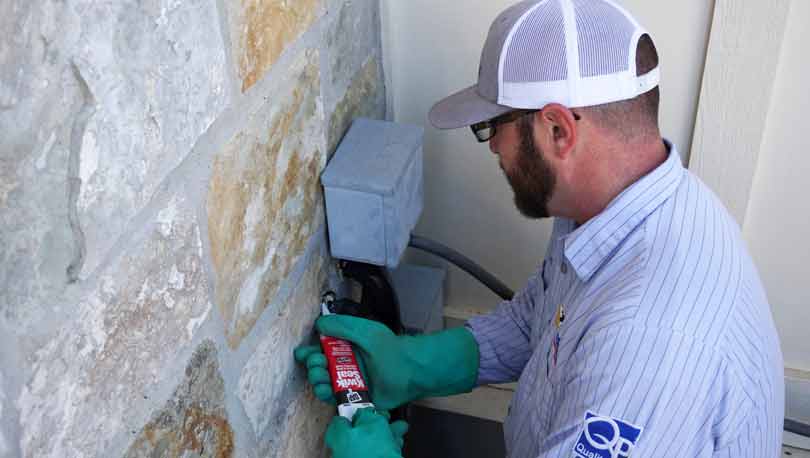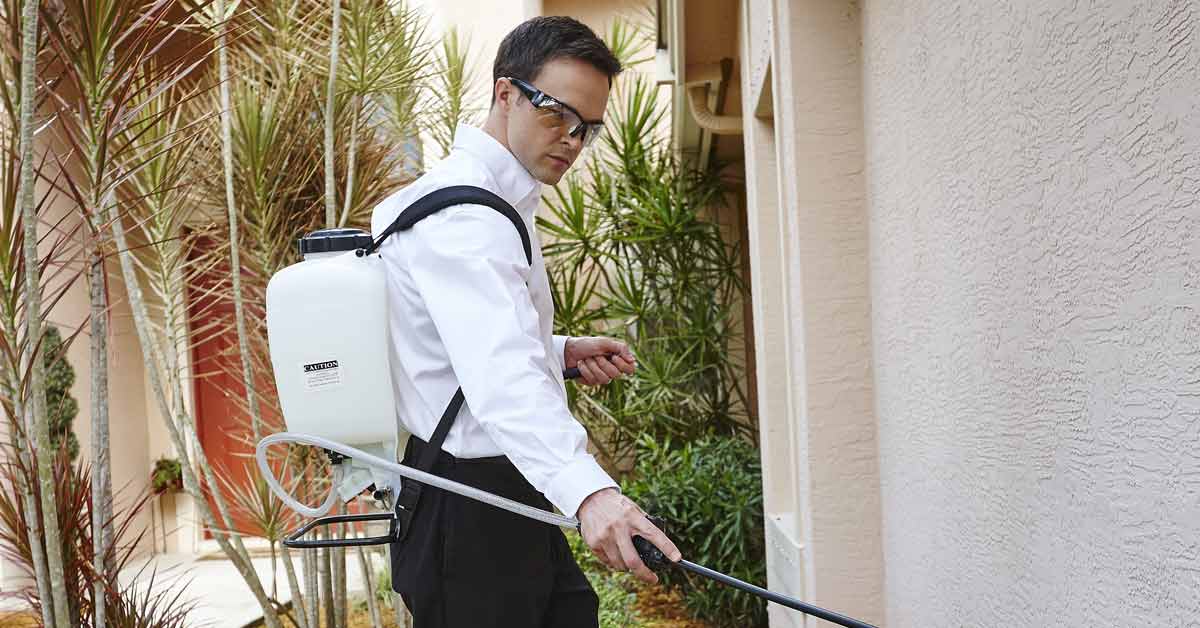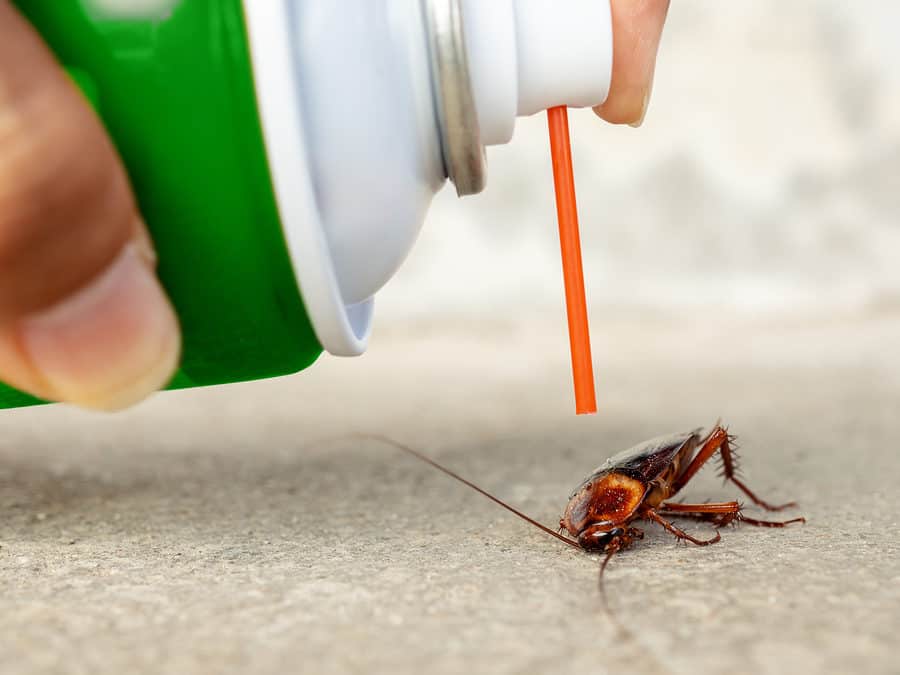Combatting Pests in Orem: Count On Our Pest Control Solutions for Comfort
Combatting Pests in Orem: Count On Our Pest Control Solutions for Comfort
Blog Article
Finding the Various Sorts Of Insect Control Techniques and Their Applications
Insect control is an important facet of keeping a healthy and balanced and secure environment, whether it be in residential, business, or farming settings. Various techniques have actually been developed and fine-tuned for many years to effectively minimize and handle parasite problems. From chemical techniques that target particular insects to biological approaches that harness all-natural killers, the realm of pest control is vast and varied. Recognizing the different kinds of parasite control techniques and their applications is important for executing one of the most appropriate and lasting options. Allow's discover the details of these techniques and just how they can be properly made use of to address pest-related difficulties.
Chemical Bug Control Techniques
Chemical bug control techniques are extensively utilized in farming and insect management to successfully eliminate or manage pest infestations. These approaches entail the use of chemical materials, such as herbicides, pesticides, and insecticides, to lower or remove insect populations that posture a risk to crops, livestock, or human health and wellness.
While chemical insect control techniques can be very efficient in handling pest populations, they additionally raise problems about possible ecological and health and wellness threats. It is vital to follow security standards, use incorporated pest management strategies, and think about alternative approaches to lessen the unfavorable effects of chemical bug control techniques.
Biological Parasite Control Approaches
 Biological bug control methods use living organisms to decrease and handle bug populations in a eco pleasant and sustainable manner. This technique includes presenting all-natural predators, parasites, or pathogens to regulate pests without the need for synthetic chemicals. One usual method is the release of ladybugs to deal with aphids in gardens, as ladybugs are all-natural predators of these damaging bugs. One more instance is making use of Bacillus thuringiensis (Bt), a germs that creates toxins lethal to particular insect larvae, to control mosquitoes and caterpillars.
Biological bug control methods use living organisms to decrease and handle bug populations in a eco pleasant and sustainable manner. This technique includes presenting all-natural predators, parasites, or pathogens to regulate pests without the need for synthetic chemicals. One usual method is the release of ladybugs to deal with aphids in gardens, as ladybugs are all-natural predators of these damaging bugs. One more instance is making use of Bacillus thuringiensis (Bt), a germs that creates toxins lethal to particular insect larvae, to control mosquitoes and caterpillars. 
Biological bug control approaches offer a number of advantages over chemical methods. Generally, organic pest control approaches offer a efficient and natural alternative to typical chemical therapies, promoting a well balanced ecological community and much healthier atmospheres.
Physical Parasite Control Approaches
Utilizing physical methods to control parasites includes making use of non-chemical or mechanical methods to reduce and manage bug invasions efficiently. These approaches rely upon physical barriers, traps, and various other methods to discourage and eliminate pests without making use of damaging chemicals. One common physical parasite control approach is the setup of screens, fencings, or webs to block pests from going into certain locations. This method is particularly reliable in keeping out pests and small pets from structures or gardens.
One more physical strategy is making use of traps, such as breeze traps for rats or scent traps for pests. These catches aim to record parasites without positioning any type of danger to people or the atmosphere. In addition, physical control approaches can consist of strategies like handpicking parasites off plants, using vacuum gadgets to get rid of pests, or using heat treatments to eradicate bed pests and other pests in plagued areas.
Integrated Parasite Administration Strategies
Executing a holistic technique to pest management, Integrated Bug Administration (IPM) strategies intend to integrate various efficient techniques to manage and prevent insect look at here problems while lessening environmental impact and guaranteeing lasting insect control methods. IPM involves the combination of numerous control methods such as biological control, social techniques, mechanical control, and the careful use pesticides.

Furthermore, IPM emphasizes the significance of tracking and examining pest populaces to identify the most proper control approaches. By applying IPM techniques, bug control initiatives become a lot more targeted and effective, lowering the dangers connected with too much chemical usage and promoting long-term parasite management services.
All-natural and Organic Parasite Control Options

One popular natural insect control approach is neem oil, originated from the seeds of the neem tree, which functions as a repellent and interrupts the development and development of insects. Diatomaceous planet, a natural silica-based powder, is an additional efficient organic insect control alternative that works by dehydrating pests upon contact. By integrating natural and natural parasite control options into insect monitoring approaches, people can effectively manage bugs while minimizing damage to the setting and advertising go to these guys sustainable practices.
Final Thought
To conclude, various parasite control techniques such as chemical, biological, physical, integrated bug monitoring, and natural options are available for efficiently taking care of bug problems. Each approach has its very own advantages and applications depending on the kind of pest and the atmosphere. By recognizing the different kinds of parasite control techniques and their applications, people can make enlightened decisions on the most suitable method to manage bugs and secure their residential or commercial property.
Chemical bug control methods are commonly utilized in agriculture and insect management to successfully remove or regulate pest infestations - Orem Pest Control. Natural insect control approaches entail making use of organic control representatives, such as parasites or predators, to handle bug populations. By including organic and all-natural pest control options into bug monitoring strategies, individuals can efficiently control insects while minimizing damage to the environment and advertising sustainable practices
In conclusion, various insect control strategies such as chemical, organic, physical, incorporated insect management, and natural alternatives are readily available for efficiently managing pest infestations. By comprehending the different kinds of insect control strategies and their applications, people can make educated choices on the most suitable approach to manage bugs and protect their property.
Report this page